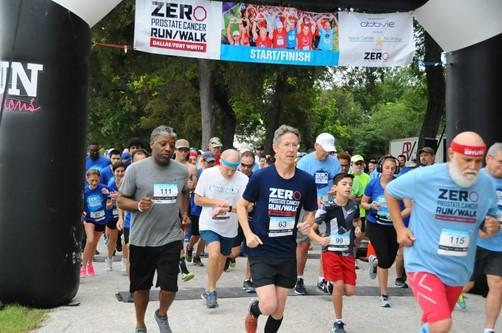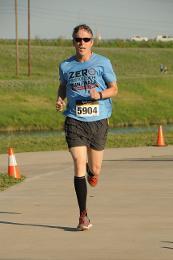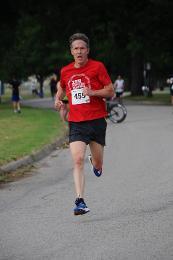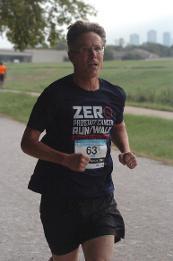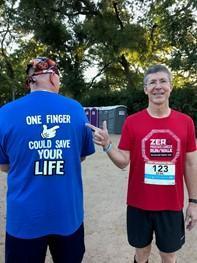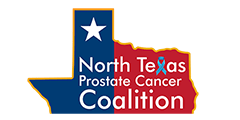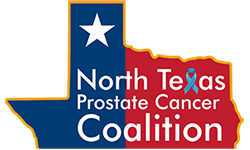This Blog was written by Brad Nowlin. Brad is a Prostate Cancer Survivor, member of the Fort Worth Prostate Cancer Support Group. Brad is a licensed counselor for couples & adults struggling with marriage, anxiety, depression, stress & more.
Past speakers (2021)
In 2018, I was diagnosed with Prostate Cancer at the age of 61. Even though I had experienced a rough patch that involved a divorce and career change at 42, I had never stared into the abyss of mortality so intently. As a trained mental health professional I suppose I had some advantages, but as a human I deeply felt the full range of emotions. Fear, sadness and anger were among the most common negative emotions. It was a year that had 4 surgeries and lots of confusion. It was a year that taught me about resilience.
Here’s what I’ve learned so far:
Here’s what I’ve learned so far:
- Feel the feelings. It’s a normative response for those more comfortable expressing emotions, and I have not been in that group. As Brene Brown discusses, vulnerability is essential to connection; within and with others. By not hiding or drinking or drugging or masking my feelings, I allowed them to be expressed naturally. It’s less work to just surrender and allow the feelings to be present. I cried and felt better afterward. I was present with my anguish imagining leaving my loved ones. I was sullen and resentful and wondering why I had cancer. It sucked, but I didn’t fight it or resist the full expression of feelings. You cannot change or heal what you do not acknowledge.
- Discover new strengths. In the past I’ve picked a word to guide me throughout the year. Listen, Enjoy, and Patient have been some of my words of the year. Accept was my word for 2018! Several years ago my word was patient which would provoke wry smiles from my wife on occasion. “What is your word for this year?” she would ask innocently. I learned how to cultivate patience and am still an eager student with work to do.
- Hope. I learned about hope from Dr. Shane Lopez in Kansas City, perhaps the world’s foremost authority on that subject. Hope involves a sense of agency, equifinality or multiple paths and a sense of optimism. I had to feel that I could do this and that there were many paths to recovery. Facing the possibilities of impotence and incontinence was not enjoyable; but necessary. There are many paths to wellness.
- Relentless perseverance. As Winston Churchill famously said, Never Give Up. It’s so easy to give up under stress and yet we must carry on. Never ever ever ever give up! We never fail at anything as long as we keep trying. Grit and determination will get you where you need to go.
- Look for a story of redemption. We are all meaning making machines, so it makes sense to look at recovery. The hero needs a challenge. Our narrative is about being an overcomer. What is the story arc of that person you are with for 24 hours? The heroes journey entails bouncing back from adversity. How will I bounce back or when will I bounce back? Not will I bounce back. Narrative therapy is all about the story and in many ways, we get to write it.
- Accept and even embrace uncertainty. No one really knows what will happen even though we like to have experts and talking heads reassure us. Whether it is the weather or news or sports we all like to be reassured that things will work out. Folks who struggle with anxiety or people with a less secure sense of attachment spend a lot of energy fortune telling and catastrophizing. That is why being present works so well in prayer, mediation, yoga and other grounding centering activities.
- Self-compassion. There couldn’t be anything more important than being kind to ourselves, especially in our self-talk. It’s been easy to look for cause and effect with cancer and to blame myself for tobacco use (dipping) when younger. Yet being kind to myself keeps me from the harsh judgment of an inner critic. I can be as kind and understanding as I would be with a friend. “The courage to be is the courage to accept oneself, in spite of being unacceptable.” – Paul Tillich.
- Find more empathy for those who suffer. Getting outside our story helps us gain perspective. Knowing about folks who have died from Cancer both scares me and gives me space for perspective. As one lady I know answered the ubiquitous, ‘how are you doing’ question: “I’m having a great day, I’m on the right side of dirt.” I am curious about cancer survivors of all types as I want to know how they did it. In the Denver Airport I was humbled as I was wearing a catheter and the TSA treated me rudely. It made me have empathy for others who travel with wheelchairs and whatnot and how hard it must be for them.
- Grit and optimism. Where is the locus of control? Is it within us to set a growth mindset? What can I learn from this? A curious mental approach takes us away from our hot emotions and allows us to dig deeper. Is there a lesson about patience or resilience I get to learn and model for others?
- Faith and the why. The existential questions of why can overwhelm us when it is more productive to address what. What can I do today to serve others, to add value and to make our communities better? I believe in a loving God and that a higher power is in charge, not me. What is God teaching me from this? Not to be a victim, but rather to be an inspiration. Someone who grows and shines (not from radiation) from this experience. My Physician brother said that this would make me a better person. I am hopeful that will be true and that I continue to be grateful for this blessing I call cancer.
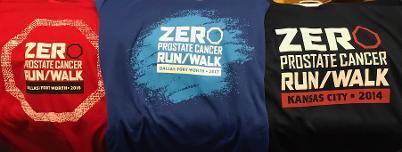
I am a regular 5K runner and I ran the Prostate run in Kansas City several times and Fort Worth as well.
